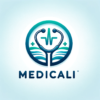In today’s fast-paced world, time and efficiency are crucial factors in every industry, and healthcare is no exception. The ability to provide fast, accurate, and reliable care has become the cornerstone of effective healthcare delivery. This is where point-of-care solutions step in, revolutionizing the way healthcare is administered.
What exactly are point-of-care solutions? Put simply, they are medical devices, tools, or tests that can be used directly at the patient’s bedside or during a consultation, eliminating the need for samples to be sent to a laboratory for analysis. Point-of-care solutions bring the diagnosis, treatment, and monitoring of patients to the point of care, reducing the time between testing and decision-making.
One prime example of a point-of-care solution is portable diagnostic devices. These compact and user-friendly tools can provide immediate analysis of a wide range of medical parameters, such as blood glucose levels, cholesterol levels, or even infectious diseases. With these portable devices, healthcare professionals can obtain real-time results and make informed decisions immediately, saving time and ultimately improving patient outcomes.
Not only do point-of-care solutions enhance the speed of diagnosis and treatment, but they also bring healthcare closer to the patient. Traditionally, patients had to visit hospitals or clinics for routine tests, leading to delays, inconvenience, and added stress. However, with point-of-care solutions, patients can receive immediate testing and care in their own homes, nursing homes, or even in remote areas with limited access to healthcare facilities. This accessibility ensures that patients receive timely interventions, preventing the progression of diseases and reducing the need for hospitalizations.
Another significant advantage of point-of-care solutions is their potential to improve patient engagement and empowerment. Patients can actively participate in their own care by monitoring their health conditions regularly, using devices such as blood pressure monitors or pulse oximeters. By being involved in the management of their health, patients can gain a sense of control and take proactive steps towards achieving better health outcomes.
Furthermore, point-of-care solutions have shown tremendous potential in reducing healthcare costs. In traditional healthcare systems, laboratory tests often involve lengthy waiting periods for results and subsequent consultations. This leads to unnecessary hospital stays, additional appointments, and repeated tests, all of which contribute to increased healthcare costs. With point-of-care solutions, the time between testing and decision-making is significantly reduced, leading to more efficient use of healthcare resources and cost-effective care.
However, it is important to note that point-of-care solutions do come with their challenges. These devices and tests need to adhere to strict quality standards to ensure accuracy and reliability. Regulatory bodies play a crucial role in evaluating and certifying these solutions to ensure patient safety and optimum performance.
In conclusion, point-of-care solutions have the potential to revolutionize healthcare by unleashing the power of immediate diagnostics, expanding accessibility, and empowering patients. These solutions bring healthcare closer to the patient, reduce waiting times, improve patient outcomes, and contribute to cost savings. As technology continues to advance, the future of healthcare lies in the integration of innovative point-of-care solutions, enabling healthcare professionals to make timely, informed decisions and provide optimal care for patients.

